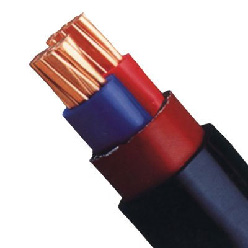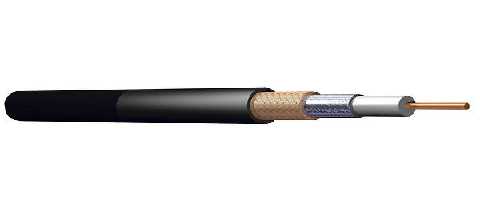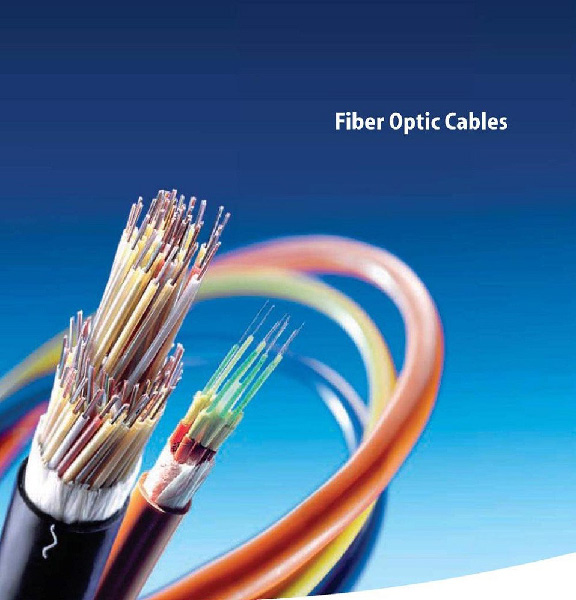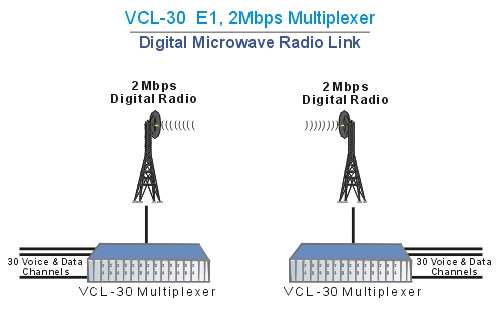An IS auditor should know information about different network transmission media. Which of the following transmission media is used for short distance transmission?
A. Copper cable
B. Fiber Optics
C. Satellite Radio Link
D. Satellite Radio Link
A. Copper cable
B. Fiber Optics
C. Satellite Radio Link
D. Satellite Radio Link
Correct Answer: A
Explanation:
Explanation:
Copper cable is very simple to install and easy to tap. It is used mostly for short distance and supports voice and data.
For your exam you should know below information about transmission media:
Copper Cable
Copper cable is very simple to install and easy to tap. It is used mostly for short distance and supports voice and data.
Copper has been used in electric wiring since the invention of the electromagnet and the telegraph in the 1820s.The invention of the telephone in 1876 created further demand for copper wire as an electrical conductor.
Copper is the electrical conductor in many categories of electrical wiring. Copper wire is used in power generation, power transmission, power distribution, telecommunications, electronics circuitry, and countless types of electrical equipment. Copper and its alloys are also used to make electrical contacts. Electrical wiring in buildings is the most important market for the copper industry. Roughly half of all copper mined is used to manufacture electrical wire and cable conductors.
Copper Cable

Coaxial cable
Coaxial cable, or coax (pronounced ‘ko.aks), is a type of cable that has an inner conductor surrounded by a tubular insulating layer, surrounded by a tubular conducting shield. Many coaxial cables also have an insulating outer sheath or jacket. The term coaxial comes from the inner conductor and the outer shield sharing a geometric axis. Coaxial cable was invented by English engineer and mathematician Oliver Heaviside, who patented the design in 1880.Coaxial cable differs from other shielded cable used for carrying lower-frequency signals, such as audio signals, in that the dimensions of the cable are controlled to give a precise, constant conductor spacing, which is needed for it to function efficiently as a radio frequency transmission line.
Coaxial cable is expensive and does not support many LAN’s. It supports data and video.

Coaxial Cable
Fiber optics
An optical fiber cable is a cable containing one or more optical fibers that are used to carry light. The optical fiber elements are typically individually coated with plastic layers and contained in a protective tube suitable for the environment where the cable will be deployed. Different types of cable are used for different applications, for example long distance telecommunication, or providing a high-speed data connection between different parts of a building.
Fiber optics used for long distance, hard to splice, not vulnerable to cross talk and difficult to tap. It supports voice data, image and video.
Fiber Optics

Radio System
Radio systems are used for short distance, cheap and easy to intercept.
Radio is the radiation (wireless transmission) of electromagnetic signals through the atmosphere or free space.
Information, such as sound, is carried by systematically changing (modulating) some property of the radiated waves, such as their amplitude, frequency, phase, or pulse width. When radio waves strike an electrical conductor, the oscillating fields induce an alternating current in the conductor. The information in the waves can be extracted and transformed back into its original form.
Microwave radio system
Microwave transmission refers to the technology of transmitting information or energy by the use of radio waves whose wavelengths are conveniently measured in small numbers of centimeter; these are called microwaves.
Microwaves are widely used for point-to-point communications because their small wavelength allows conveniently-sized antennas to direct them in narrow beams, which can be pointed directly at the receiving antenna. This allows nearby microwave equipment to use the same frequencies without interfering with each other, as lower frequency radio waves do. Another advantage is that the high frequency of microwaves gives the microwave band a very large information-carrying capacity; the microwave band has a bandwidth 30 times that of all the rest of the radio spectrum below it. A disadvantage is that microwaves are limited to line of sight propagation; they cannot pass around hills or mountains as lower frequency radio waves can.
Microwave radio transmission is commonly used in point-to-point communication systems on the surface of the Earth, in satellite communications, and in deep space radio communications. Other parts of the microwave radio band are used for radars, radio navigation systems, sensor systems, and radio astronomy.
Microwave radio systems are carriers for voice data signal, cheap and easy to tap.
Microwave Radio System

Satellite Radio Link
Satellite radio is a radio service broadcast from satellites primarily to cars, with the signal broadcast nationwide, across a much wider geographical area than terrestrial radio stations. It is available by subscription, mostly commercial free, and offers subscribers more stations and a wider variety of programming options than terrestrial radio.
Satellite radio link uses transponder to send information and easy to intercept.
The following answers are incorrect:
Fiber optics – Fiber optics cables are used for long distance, hard to splice, not vulnerable to cross talk and difficult to tap. It supports voice data, image and video.
Radio System – Radio systems are used for short distance, cheap and easy to tap.
Satellite Radio Link – Satellite radio link uses transponder to send information and easy to tap.
Reference:
CISA review manual 2014 page number 265
Copper cable is very simple to install and easy to tap. It is used mostly for short distance and supports voice and data.
For your exam you should know below information about transmission media:
Copper Cable
Copper cable is very simple to install and easy to tap. It is used mostly for short distance and supports voice and data.
Copper has been used in electric wiring since the invention of the electromagnet and the telegraph in the 1820s.The invention of the telephone in 1876 created further demand for copper wire as an electrical conductor.
Copper is the electrical conductor in many categories of electrical wiring. Copper wire is used in power generation, power transmission, power distribution, telecommunications, electronics circuitry, and countless types of electrical equipment. Copper and its alloys are also used to make electrical contacts. Electrical wiring in buildings is the most important market for the copper industry. Roughly half of all copper mined is used to manufacture electrical wire and cable conductors.
Copper Cable

Coaxial cable
Coaxial cable, or coax (pronounced ‘ko.aks), is a type of cable that has an inner conductor surrounded by a tubular insulating layer, surrounded by a tubular conducting shield. Many coaxial cables also have an insulating outer sheath or jacket. The term coaxial comes from the inner conductor and the outer shield sharing a geometric axis. Coaxial cable was invented by English engineer and mathematician Oliver Heaviside, who patented the design in 1880.Coaxial cable differs from other shielded cable used for carrying lower-frequency signals, such as audio signals, in that the dimensions of the cable are controlled to give a precise, constant conductor spacing, which is needed for it to function efficiently as a radio frequency transmission line.
Coaxial cable is expensive and does not support many LAN’s. It supports data and video.

Coaxial Cable
Fiber optics
An optical fiber cable is a cable containing one or more optical fibers that are used to carry light. The optical fiber elements are typically individually coated with plastic layers and contained in a protective tube suitable for the environment where the cable will be deployed. Different types of cable are used for different applications, for example long distance telecommunication, or providing a high-speed data connection between different parts of a building.
Fiber optics used for long distance, hard to splice, not vulnerable to cross talk and difficult to tap. It supports voice data, image and video.
Fiber Optics

Radio System
Radio systems are used for short distance, cheap and easy to intercept.
Radio is the radiation (wireless transmission) of electromagnetic signals through the atmosphere or free space.
Information, such as sound, is carried by systematically changing (modulating) some property of the radiated waves, such as their amplitude, frequency, phase, or pulse width. When radio waves strike an electrical conductor, the oscillating fields induce an alternating current in the conductor. The information in the waves can be extracted and transformed back into its original form.
Microwave radio system
Microwave transmission refers to the technology of transmitting information or energy by the use of radio waves whose wavelengths are conveniently measured in small numbers of centimeter; these are called microwaves.
Microwaves are widely used for point-to-point communications because their small wavelength allows conveniently-sized antennas to direct them in narrow beams, which can be pointed directly at the receiving antenna. This allows nearby microwave equipment to use the same frequencies without interfering with each other, as lower frequency radio waves do. Another advantage is that the high frequency of microwaves gives the microwave band a very large information-carrying capacity; the microwave band has a bandwidth 30 times that of all the rest of the radio spectrum below it. A disadvantage is that microwaves are limited to line of sight propagation; they cannot pass around hills or mountains as lower frequency radio waves can.
Microwave radio transmission is commonly used in point-to-point communication systems on the surface of the Earth, in satellite communications, and in deep space radio communications. Other parts of the microwave radio band are used for radars, radio navigation systems, sensor systems, and radio astronomy.
Microwave radio systems are carriers for voice data signal, cheap and easy to tap.
Microwave Radio System

Satellite Radio Link
Satellite radio is a radio service broadcast from satellites primarily to cars, with the signal broadcast nationwide, across a much wider geographical area than terrestrial radio stations. It is available by subscription, mostly commercial free, and offers subscribers more stations and a wider variety of programming options than terrestrial radio.
Satellite radio link uses transponder to send information and easy to intercept.
The following answers are incorrect:
Fiber optics – Fiber optics cables are used for long distance, hard to splice, not vulnerable to cross talk and difficult to tap. It supports voice data, image and video.
Radio System – Radio systems are used for short distance, cheap and easy to tap.
Satellite Radio Link – Satellite radio link uses transponder to send information and easy to tap.
Reference:
CISA review manual 2014 page number 265